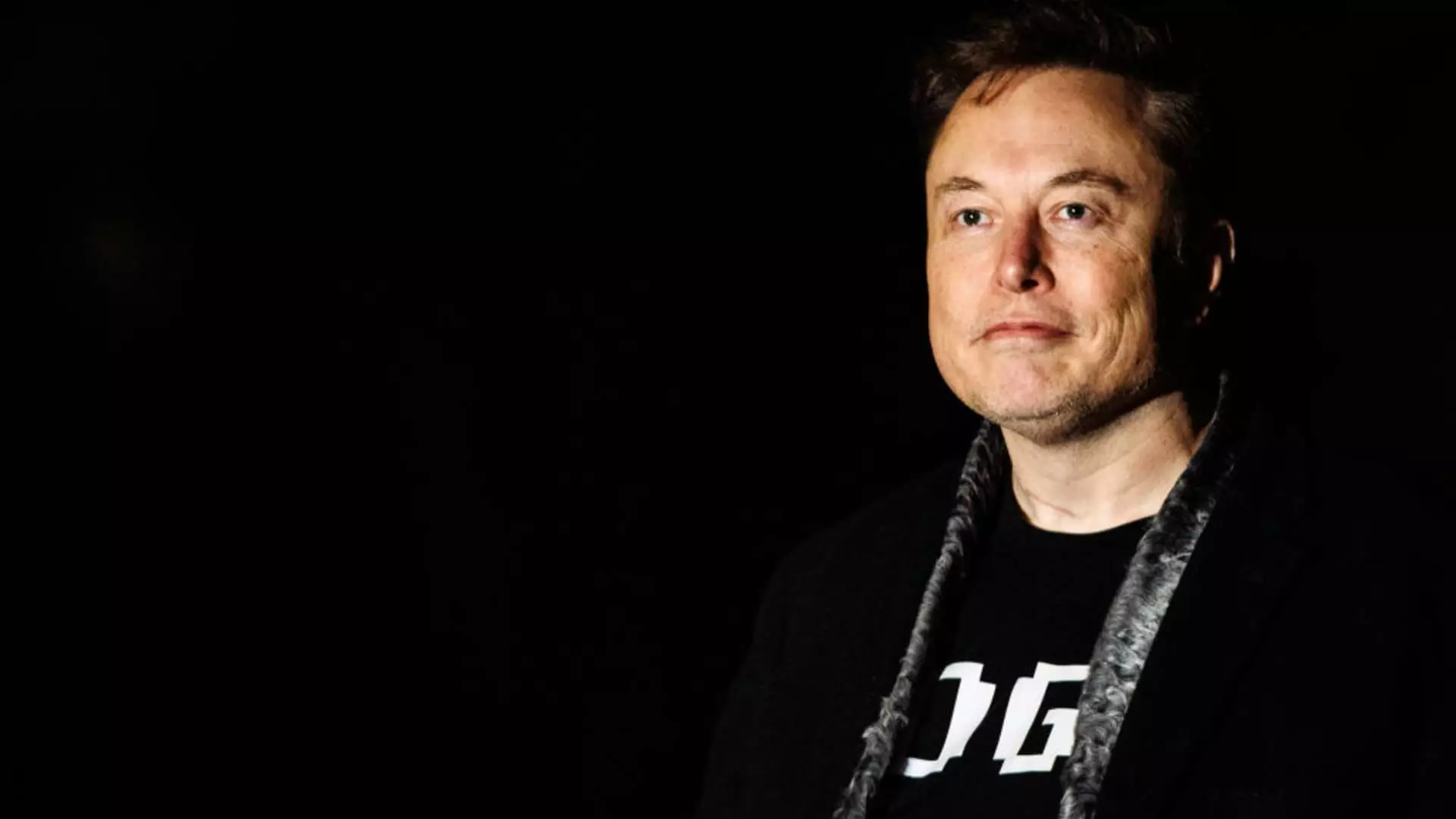Elon Musk, the enigmatic tech mogul known for his ambitious ventures, finds himself in a precarious situation. He recently revealed that he manages his conglomerate of companies “with great difficulty,” a statement reflecting the turbulence that has shaken the foundations of his enterprise. The latest events surrounding Tesla reveal a broader narrative: the monumental risk of hubris when innovation meets governance. Tesla shares have plummeted more than 50%, shedding nearly $800 billion in market value—an astronomical loss that highlights the fragility of even the most celebrated companies under the weight of unforeseen circumstances.
Musk’s transition into a governmental role, specifically as head of the Department of Government Efficiency, has been anything but smooth. His efforts to streamline federal operations have reportedly resulted in a reduction of 10,000 jobs as of February, yet skepticism persists regarding the authenticity of claimed savings. Observers rightfully question the philosophy underpinning his aggressive tactics: can one man truly effect profound change in the bureaucratic maze that is the federal government? Or does his entrepreneurial mindset lack the humility necessary for public stewardship?
Market Volatility and the Ripple Effect
As Musk juggles his responsibilities at Tesla, X (formerly Twitter), SpaceX, and Neuralink, the consequences of his multifaceted role become glaringly evident. The stock market does not operate based solely on optimism; it leans heavily on stability and proof of performance. When Musk, known for his bold proclamations and tweets that can send stocks soaring or plummeting, connects his corporate strategy to government efficiency, he invites scrutiny and skepticism from investors and analysts alike.
The chaotic behavior surrounding these companies extends beyond financial performance. The recent outages on X have further marred Musk’s reputation, which he attributed to an alleged cyberattack from the Ukraine region—an assertion that lacks substantiation. When leaders like Musk engage in dramatic claims without credible backing, they risk not only their reputations but also the trust of their stakeholders. In a world so intertwined with digital communications, one might wonder: is it possible for an innovator to remain credible when governmental responsibilities muddy the waters?
Confronting Political Backlash
The societal implications of Musk’s ventures extend into the political arena as well, exemplified by his recent confrontation with Senator Mark Kelly. Musk’s sudden accusation of treachery against the Democratic senator—after Kelly spoke about supporting Ukraine in its fight against Russian aggression—displays a stark disconnect between his business persona and the realities faced by public figures who must navigate complex geopolitical landscapes.
Kelly’s rebuttal—rooted in the principles of freedom that underlie American democratic values—stands in sharp contrast to Musk’s cavalier dismissal of governmental and international sensitivities. This exchange serves as a reminder that while Musk may excel in entrepreneurship, his ability to engage constructively in political dialogue remains questionable. The stakes have never been higher, as the Trump administration pressures Ukraine into concessions that could redefine borders and international relations. Musk’s cavalier attitude risks trivializing the dire consequences of global conflict, undermining the seriousness of the position he occupies.
The Path Forward: Are We Ready for Change?
Musk’s relentless pursuit of efficiency and his declarations of imminent financial success—such as the $1 trillion in proposed savings—reveal an inherent concern for the longevity of his influence. Yet for every promise made, the results must translate into tangible success. If the current trajectory continues, Musk might find that his ambition, while commendable, could overshadow the essential truths that accompany governance and responsibility in public service.
As he navigates the treacherous waters of leadership, the question arises: Can Musk reconcile his visions with the practicality of governance? Leadership demands more than sheer will—it requires a profound understanding of the systems at play and an acknowledgment of their historical burdens. If he genuinely seeks to transform the federal sphere, Musk will need to demonstrate an ability to listen and adapt, recognizing that the machinery of government requires both innovation and stability—elements that aren’t easily reconciled.


Leave a Reply